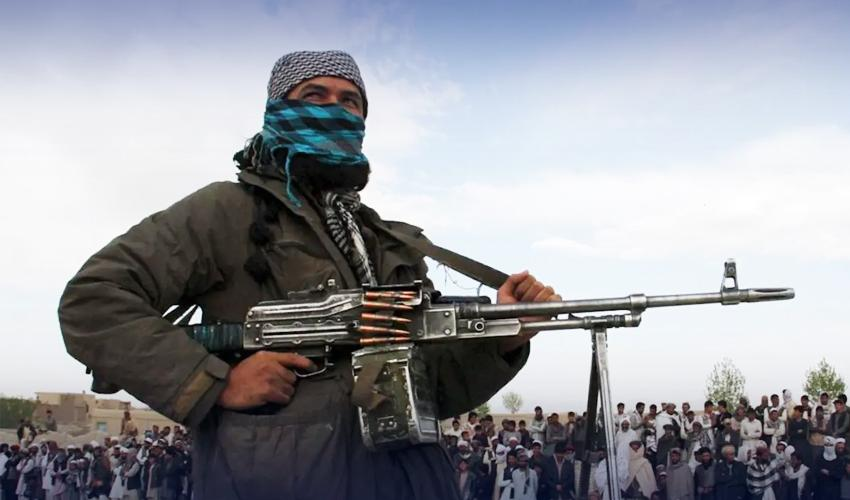How Afghanistan’s Security Vacuum Fuels Global Terrorism?

Afghanistan, once a central stage for geopolitics and conflict, is now swiftly becoming a haven for global terrorism once again. The power vacuum left in the wake of the Taliban’s resurgence has provided a fertile ground for international terrorist organizations (ITOs) to grow and thrive, bringing the entire region—and beyond—into jeopardy. The dangerous collusion between these groups and the Afghan Taliban is not a distant possibility but an unfolding reality, one that threatens to unravel regional stability and ignite far-reaching global security risks.
Among the most concerning developments is the close, yet insidious, relationship between the Taliban and Al-Qaeda, one that has endured despite numerous international promises and commitments to curtail terrorist activities. Al-Qaeda, along with other international terrorist groups such as ISKP (Islamic State Khorasan Province), ETIM (East Turkestan Islamic Movement), and TIP (Turkistan Islamic Party), continues to operate freely within Afghanistan, using it as a base to recruit, train, and strategize attacks across the globe. The once-broken Al-Qaeda now enjoys Taliban protection, re-establishing its foothold in the very country where it masterminded the September 11 attacks.
As these organizations rapidly expand, the threat they pose is not just regional but global. Afghanistan’s vast security vacuum has become an incubator for extremism, with terrorist factions seeking to exploit the country’s lawlessness to fuel their agendas. The implications of this resurgence are far-reaching: these groups, operating from Afghanistan, are no longer confined to the region but actively engage in plotting attacks across continents. Their reach is extending beyond South Asia, making this issue a pressing concern for the entire international community.
The United Nations’ 35th report from the Analytical Support & Sanctions Monitoring Team has sounded the alarm on this critical issue, confirming the presence of these groups in Afghanistan and highlighting the Taliban’s support for them. According to the report, organizations like TTP (Tehrik-i-Taliban Pakistan), ISKP, AQ, ETIM, and TIP are using Afghanistan as a sanctuary for training and launching operations. The evidence is clear, and Pakistan, which shares a long border with Afghanistan, has consistently raised concerns over these terrorist sanctuaries. However, the Taliban-led Afghan government (IAG) has vehemently denied these allegations, despite mounting evidence that these groups operate with relative impunity within their borders.
This denial of reality by the Taliban is a dangerous game of evasion that further endangers the region. As the groups under their patronage continue to plan attacks, their influence is not just felt in Afghanistan but spills over into neighboring countries, particularly Pakistan. Over the past several years, Pakistan has witnessed an increasing number of terrorist attacks launched by groups like the TTP, BLA (Balochistan Liberation Army), and ISKP, all of which operate openly from Afghan soil. The effects are devastating: bombings, ambushes, and targeted assassinations have killed hundreds of innocent civilians and Pakistani security forces. These attacks are not random incidents—they are coordinated assaults by organizations with deep roots in Afghanistan, whose sole purpose is to destabilize Pakistan and further their extremist agendas.
Pakistan, as a direct neighbor and a frontline state in the fight against terrorism, is suffering the most from this growing threat. The country has long called for the dismantling of these groups by the Taliban, but the response has been inadequate and dismissive. The international community cannot afford to ignore this situation any longer. If Afghanistan’s terrorist sanctuaries remain unchecked, the consequences will extend far beyond South Asia. Global peace and security are at stake. The Taliban’s refusal to rein in these groups demonstrates their disregard for international norms and peace efforts, further undermining efforts to stabilize the region.
It is time for the international community to step in and act. The collusion between FAK (Foreign and Afghan Terrorist Groups) and ITOs in Afghanistan is not a problem that can be contained by regional actors alone. Global cooperation is essential to curb the spread of extremism and prevent Afghanistan from becoming a launchpad for further global attacks. The Taliban’s role in harboring these organizations must be addressed through diplomatic pressure, targeted sanctions, and, if necessary, multilateral action to hold them accountable for their failure to comply with international security standards.
For Pakistan, the stakes are particularly high. The continued presence of these terrorist groups on Afghan soil poses an existential threat to its security and stability. Pakistan’s suffering, compounded by the loss of lives and destruction caused by cross-border terrorism, highlights the urgency of this issue. If Afghanistan is left to continue as a safe haven for these groups, the ripple effects will be felt across the globe. The time to act is now, before the situation spirals out of control and spreads even further, endangering peace in regions far removed from the Afghan-Pakistan border.
The international community must focus on dismantling the influence of FAK and ITOs in Afghanistan. By taking firm and decisive action, the world can prevent Afghanistan from descending into a new era of terror, one where extremist group operate freely, and security breaches become a permanent feature of global affairs. The future of Afghanistan, and the stability of the region, depend on the collective will of nations to confront this growing threat with urgency and resolve.











